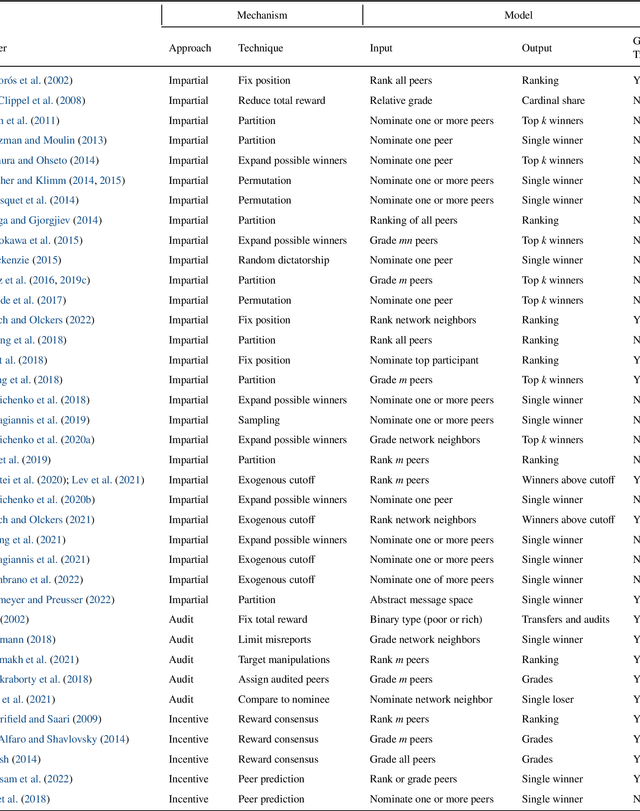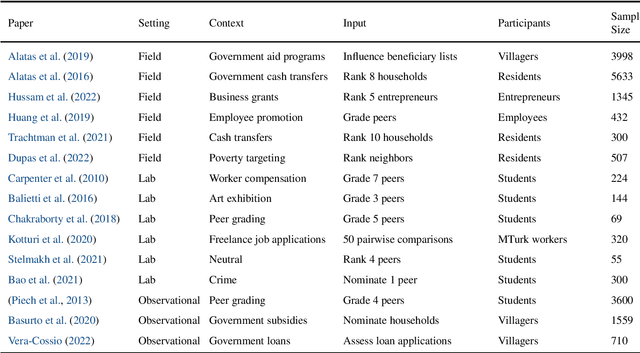Matthew Olckers
Incentives to Offer Algorithmic Recourse
Jan 27, 2023Abstract:Due to the importance of artificial intelligence (AI) in a variety of high-stakes decisions, such as loan approval, job hiring, and criminal bail, researchers in Explainable AI (XAI) have developed algorithms to provide users with recourse for an unfavorable outcome. We analyze the incentives for a decision-maker to offer recourse to a set of applicants. Does the decision-maker have the incentive to offer recourse to all rejected applicants? We show that the decision-maker only offers recourse to all applicants in extreme cases, such as when the recourse process is impossible to manipulate. Some applicants may be worse off when the decision-maker can offer recourse.
Manipulation and Peer Mechanisms: A Survey
Oct 05, 2022

Abstract:In peer mechanisms, the competitors for a prize also determine who wins. Each competitor may be asked to rank, grade, or nominate peers for the prize. Since the prize can be valuable, such as financial aid, course grades, or an award at a conference, competitors may be tempted to manipulate the mechanism. We survey approaches to prevent or discourage the manipulation of peer mechanisms. We conclude our survey by identifying several important research challenges
 Add to Chrome
Add to Chrome Add to Firefox
Add to Firefox Add to Edge
Add to Edge